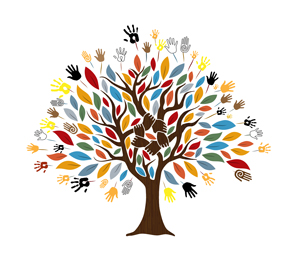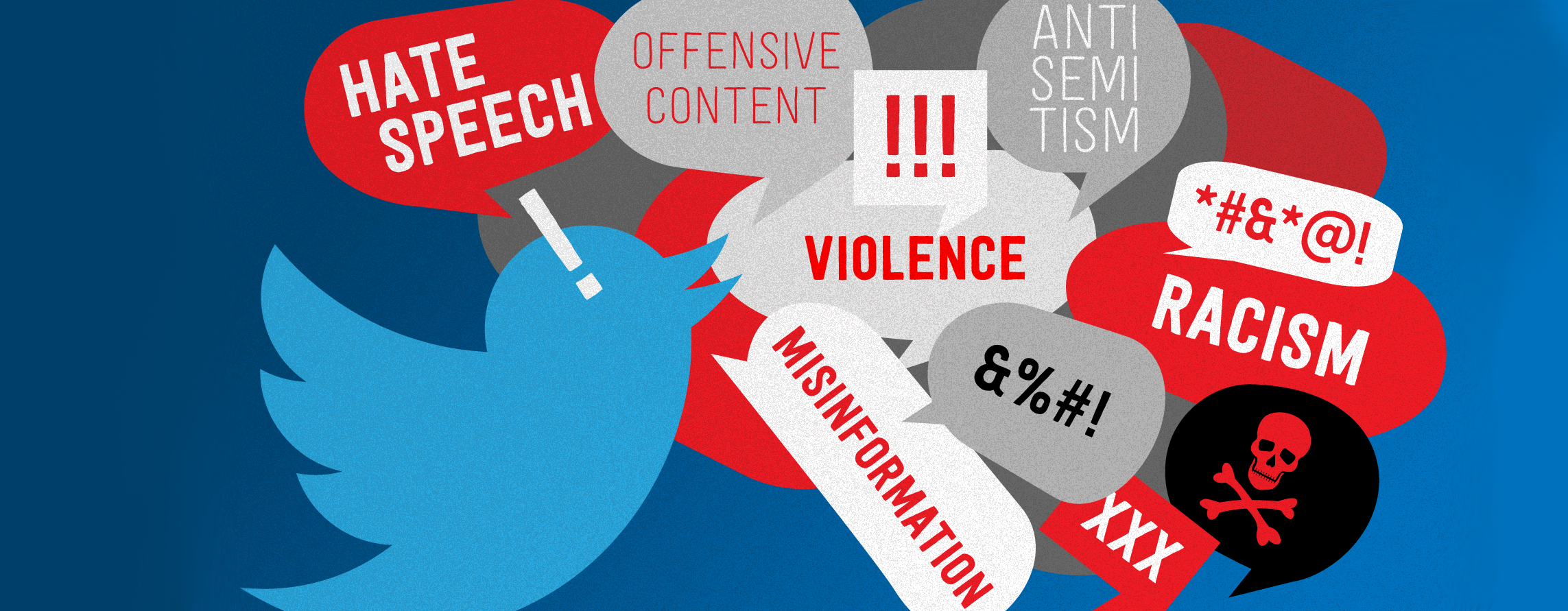Abid Jan, Jan 05 2023.
We cannot continue to draw the line between a terrorist act and a hate crime according to textbook definitions if we are serious about accurately tracking and addressing the root causes of our country’s hate crime problem.
In order to draw the appropriate conclusions, it is important to remember the white supremacist massacre of nine Black people at a Charleston church in 2015, the 11 worshippers killed in the Pittsburgh Tree of Life synagogue shooting in 2018, and the 51 fatalities and 40 injured in the Christchurch Mosque shooting in 2019.
Traditionally hate crimes are considered motivated at least in part by an offender’s personal bias and are disproportionately committed by individuals, acting alone, not under the direction of an organized hate group. Terrorist attacks, on the other hand, are considered violent acts inspired primarily by extremist beliefs and intended as political or ideological statements.
Hate speech and non-violent incidents aside, all violent hate crimes are acts of terror. They serve as a message to other members of that community to intimidate them. This fulfils the requirements for terrorism.
In the Canadian context, Canadian police registered 2669 criminal offences in 2020 with a hate motive. This was the highest number ever tallied since similar statistics became available in 2009. Lack of preventative measures will increase the number of violent hate crimes over time. Due to the traditional distinction between hate crimes and terrorism, the government has paid less attention to perpetrators, prevention, and reactions connected to hate crimes than terrorism, which occurs significantly less frequently.
Federal, provincial, and municipal governments have treated hate crimes as a “local” issue separate from terrorism while addressing terrorism as a national security issue for criminological, legal, bureaucratic, and sociological reasons. Violent hate crimes are a national security concern, so this needs to change.
Despite some overlap between terrorism and hate crimes, the logical distinction between the two is not arbitrary. Terrorism is defined as ideologically motivated violence designed to affect a broader population than the physical target of the attack. Hate crimes are defined as crimes in which the victims are targeted because of their perceived identities.
Targeted communities are affected by hate incidences and crimes regardless of whether the perpetrators’ motivation was to injure the victim only or to harm the victim and impact the wider community. The harm that hate crimes do more generally is reinforced by the fact that some result in mass casualties.
Since terrorists and those who commit hate crimes have ideological motivations, they can and do come from the same physical and digital social networks. Violent hate crimes are often glorified and amplified on social networks. A hate crime can have the same psychological and political effects as a terrorist act, even if it wasn’t planned out or is part of a more extensive campaign of violence.
Hate crimes can generate opportunities for hostile foreign influence operations to exacerbate xenophobia, racism, gender identity bias, anti-Semitism and ultimately divisiveness, at orders of magnitude more frequently than terrorism.
In the past two decades, there have been no international terrorist attacks in Canada. Comparatively, the recorded hate crimes, including foreign-influenced hate campaigns, have ripped apart our community. Polarisation is growing. Foreign influence and global networks are reinforcing preconceptions, degrading potential victims, and sowing conspiracy theories, ultimately enhancing the risk of increased domestic terrorism. This will amplify the harm brought about by hate crimes.
Separating hate crimes from terrorism leads to incomplete, false, and misleading threat assessments, which already suffer from the questionable logical distinction between domestic and foreign terrorism. Domestic terrorists are already more numerous, lethal and active than international terrorists in Canada. Still, the disparities are exacerbated when we consider that over 90 percent of our hate crime database perpetrators targeted people of colour, religious minorities and/or LGBTQ people.
The prejudices that permeate domestic extremist bubbles and society at large were the driving force behind perpetrators of hate-based violence. Security agencies concentrate on a small number of ideologically motivated acts of violence, especially those committed by foreign terrorists and violent domestic extremists, based on incomplete threat assessments. This has several adverse effects, including ineffective resource distribution, inconsistent judicial and administrative responses, and—most notably, significantly greater success rates for violent domestic attacks than for international terrorism.
Underestimating domestic extremist threats can have dangerous consequences. For example, white supremacists, who uphold and spread many of the discriminatory ideologies that spur hate crimes, are increasingly endorsing revolutionary ideologies like calling for a racial holy war, undermining democratic institutions in the name of freedom, and engaging in violence against radicalised communities.
Given that white nationalists are increasingly using mass casualty methods both domestically and globally, this revolutionary shift is alarming.
A global white supremacist network has expanded since 2015. A rising number of American extremists are driven by bigotry against Muslims and immigrants. More than in the past, this ideological shift and its impact on Canadian extremist groups have made it possible for local white supremacists to link internationally and get xenophobic influence.
Similar to the globalisation of violent jihadism that has given extremists access to resources for training, funding, and recruiting and safe havens from which to plan attacks, the globalisation of white supremacy poses long-term threats to national security.
Because treating hate crimes differently from terrorism promotes systemic racism and jeopardises public safety, there are calls in legal circles to treat hate crimes as domestic terrorist acts.
We continue to consistently and rhetorically undervalue victims of hate crimes with our current position, even though they have been the targets of violence fuelled by ideologies. This failure increases polarisation and deepens mistrust between radicalised minorities, the government and the justice system.
The idea that some lives seem less valuable than others opens the door to misperceptions that fuel resentment and divisiveness. That, in turn, welcomes foreign influence operations and makes powerful narratives that disparage institutions of power and law enforcement more appealing on both sides.
Resource allocation must be done under comprehensive and integrated threat assessments of ideologically motivated violence conducted by the government and security services. Currently, the local police department looks at hate crimes, while CSIS and the RCMP concentrate on terrorism. A fusion cell between the police and national security agencies to liaise is required. In the US, dedicated domestic terrorism offices have been set up within the Department of Homeland Security, the Department of Justice and the FBI. Moreover, the Department of Homeland Security has already declared hate crimes “a national security issue,” white supremacists as “the biggest domestic terror threat,” and white supremacy as a “motivating force behind domestic terrorism.”
Hate and violence prevention programs, such as the United for All, and law enforcement actions are equally applicable to both domestic and international terrorism threats. Preventative programmes should not be undervalued and underestimated. These are critical for national security.
The government and elected officials should never mention terrorism without simultaneously addressing hate crimes to combat the idea that terrorism and its victims are more significant than hate crimes and their victims. Canadians are harmed, injured, and killed by terrorism and hate crimes. Both terrorism and hate crimes strengthen our society’s dividing wedge issues and provide domestic and foreign adversaries with more ammunition. Both terrorism and hate crimes are a threat to national security and have no place in Canada.

